On 7 December, this conference will bring together scholars from around the world to celebrate the work of Professor Luc Bovens and his contributions to philosophy, politics and economics.
Programme
Thursday 7 December |
|||
| 9:00–9:15 | Tea and coffee | LAK.G.01C | |
| 9:15–9:20 | Alex Voorhoeve (LSE): Welcome | LAK.206 | |
| 9:20–9:50 | Andreas Schmidt (Groningen): “Getting Real on Rationality – Behavioural Science, Nudging and Public Policy” Abstract
Chair: Johanna Thoma |
LAK.206 | |
| 9:50–10:10 | Q&A | LAK.206 | |
| 10:10–10:40 | Fabienne Peter (Warwick): “Why Public Reasons Matter for Political Legitimacy: An Epistemic Perspective” Abstract
Chair: Christian List |
LAK.206 | |
| 10:40–11:00 | Q&A | LAK.206 | |
| 11:00–11:30 | Tea and coffee | LAK.G.01C | |
| 11:30–12:00 | Kai Spiekermann (LSE): “Big Data Justice” Abstract
Chair: Susanne Burri |
LAK.206 | |
| 12:00–12:20 | Q&A | LAK.206 | |
| 12:20–12:50 | Katherine Furman (Cork): “Going it Alone (Epistemically): When Should Laypersons Gather their Own Evidence?” Abstract
Chair: Christina Easton |
LAK.206 | |
| 12:50–13:10 | Q&A | LAK.206 | |
| Lunch | |||
| 14:00–14:30 | Dan Hausman (Wisconsin, LSE): “Making Policy: Nudging, Encouraging, Training, Informing, and Inculcating” Abstract
Chair: Adam Oliver |
LAK.206 | |
| 14:30–14:50 | Q&A | LAK.206 | |
| 14:50–15:20 | Karin Edvarsson Bjornberg (KTH): “Evangelical Christians and Climate Change” Abstract
Chair: Richard Bradley |
LAK.206 | |
| 15:20–15:40 | Q&A | LAK.206 | |
| 15:40–16:00 | Tea and coffee | LAK.G.01C | |
| 16:00–16:20 | Alex Voorhoeve (LSE): “Luc Bovens: an appreciation”
Chair: Anna Mahtani |
LAK.206 | |
| 16:20–17:00 | Luc Bovens (LSE) & Alexandru Marcoci (LSE): “An Efficiency Argument for Unisex Bathrooms” Abstract
Chair: Anna Mahtani |
LAK.206 | |
| 17:00–17:30 | Q&A | LAK.206 | |
This conference is FREE AND OPEN TO ALL with NO REGISTRATION REQUIRED. Seating is first-come, first served for all talks.
Location
All talks take place at LSE in room 2.06 of the Lakatos Building (LAK). For further help finding your way, see the LSE Maps and Directions website, or the Lakatos building special needs access guide via DisabledGo.
Childcare
LSE offers convenience childcare services near campus. Visit the LSE Nursery Homepage for more information and to apply.
Abstracts
Andreas Schmidt (Groningen): “Getting Real on Rationality – Behavioural Science, Nudging and Public Policy”
Public policy nudges employ cognitive biases to improve people’s decisions through small changes in their choice environments. This article responds to a central objection to such policies. The nudge approach, or so the objection goes, involves treating agents as irrational. Doing so is incompatible with liberal respect for citizens as autonomous agents and might crowd out alternative, more empowering policies. By defending a new ecological model of rationality, I respond that nudging as such does not involve treating agents as irrational. What is more, nudging can help people exercise more rational agency. Therefore, a concern for rational agency might speak for more rather than less public policy nudging.
Fabienne Peter (Warwick): “Why Public Reasons Matter for Political Legitimacy: An Epistemic Perspective”
The paper relates to Luc Bovens’ work on complex political decisions. Focusing on the epistemic circumstances of political decision-making, I argue that the legitimacy of political decisions may not require truth-tracking. I aim to show that a form of agreement-based justification can be a source of political legitimacy even if it fails to track the truth.
Kai Spiekermann(LSE) (joint work with David Axelsen, Holly Lawford-Smith, and Adam Slavny): “Big Data Justice”
Many artificial intelligence (AI) systems require huge amounts of data to train artificial neural networks. Large parts of this training data consists of freely accessible internet content. While the producers of AI systems draw on a public good – the global information commons created largely by volunteers – they typically create private goods with proprietary code for their own economic benefit. This raises the question whether it is permissible and justice-promoting to tax AI producers for the use of the global information commons. To bolster the case for such a tax, we provide two arguments against the claim that freely accessible information should always be free to use.
Katherine Furman (University of Cork): “Going it Alone (Epistemically): When Should Laypersons Gather Their Own Evidence?”
We divide epistemic labour between ourselves. None of us can individually know everything, and so we distribute the tasks of knowing certain things to specific individuals and groups. These are the experts. As laypersons, we should defer to the experts on the topics of their expertise. But what should we do in situations where it isn’t clear who the experts are and the task of deferring to them is not straightforward? Under these circumstances, is it a good idea to ‘go it alone’ epistemically? Should you attempt to gather your own evidence?
Daniel Hausman (Wisconsin and LSE): “Making Policy: Nudging, Encouraging, Training, Informing, and Inculcating”
This essay clarifies and endorses the description of nudges Luc Bovens offers in the 2008 essay, “The Ethics of Nudge” and distinguishes nudging from what it calls “encouraging,” “training,” “informing” and “inculcating.” It then turns to a serious question that the possibility of nudging implies concerning what assessment criteria normative economists should employ, if, as behavioural economics suggests, preferences are an unreliable guide to well-being. Although many of these criteria turn out to be familiar, their multiplicity highlights a difficult problem concerning well-being and the principles that should govern trade-offs between different principles.
Karin Edvarsson Bjornberg (KTH): “Evangelical Christians and Climate Change”
Studies from the US show an increased polarization among evangelical Christians over how to respond to climate change. In this presentation, I discuss six scripture-based arguments against greenhouse gas emissions reductions put forward by leaders of the evangelical climate countermovement: the paganism argument, the enrichment argument, the omnipotence argument, the lack of moral relevance argument, the cost-benefit argument, and the “end times” argument. To what extent do the arguments build on premises that contradict climate science? Can they be accommodated with a more progressive approach to climate adaptation?
Luc Bovens (LSE) and Alexandru Marcoci (LSE): “An Efficiency Argument for Unisex Restrooms”
Recently there has been much public debate regarding whether restroom access should be linked to one’s sex at birth. Current ways of framing the debate tend to engage people’s ideological commitments and lead to a very polarized arena. To make some headway, we propose a different way of framing the issue—one we hope will provide some common ground among all groups. Our idea is simple: let’s talk about the (economic) efficiency of more inclusive facilities. The move to unisex restrooms increases economic efficiency in two ways. First, if we preserve the current architecture, then opening all stalls to everyone leads to a drastic reduction in waiting times. Second, if we respect the maximum waiting time that is implicitly allowed by current legislation, then by moving to a unisex policy we can eliminate facilities while attaining the same waiting times. Since all parties to the debate have reason to care about efficiency, there is at least one argument in favour of inclusive restrooms that all can agree on.





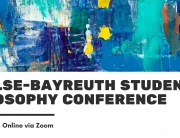
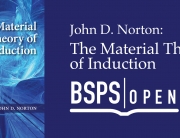


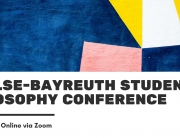




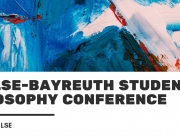

















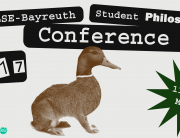

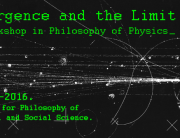




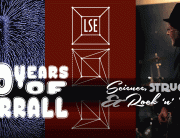




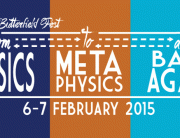

Connect with us
Facebook
Twitter
Youtube
Flickr